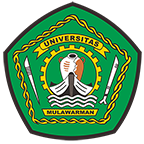ESG: Criteria 2.8

2.8 - Public Information
Public information is an essential element of quality assurance, institutional transparency, and public trust. Universitas Mulawarman is committed to providing timely, accessible, and accurate information regarding its academic offerings, institutional performance, and stakeholder engagement initiatives. For the Magister Pendidikan Bahasa Inggris (MPBI)program, public information management is aligned with ESG 1.8 and national expectations of good governance in higher education. The dissemination of academic and institutional information is conducted primarily through the university website, MPBI program page, social media platforms, brochures, student portals, and alumni networks.
1. Transparency of Academic and Institutional Information
Universitas Mulawarman, through its MPBI program, ensures that essential academic and institutional information is published and maintained regularly. The MPBI homepage, accessible through the university's main website, includes updated descriptions of the program’s vision and mission, curriculum structure, course offerings, admission requirements, and expected graduate competencies. Accreditation statuses, degree qualifications, and program learning outcomes (PLOs) are displayed to reinforce institutional transparency. These resources are complemented by promotional brochures and a digital student handbook available to prospective and current students.
The MPBI program regularly communicates achievements in research, community service, student activities, and academic events through news updates on the website and official social media accounts. Notably, public information has improved in clarity and consistency over the past two years, following university directives on transparency. Institutional rankings and internal quality assessments, including accreditation reports, are also publicly available.
However, some challenges remain. While general information is accessible, more detailed academic documents such as course syllabi, learning materials, and grading rubrics are not yet uniformly published online. Additionally, although the university has made progress in bilingual presentation, the availability of English-translated academic content remains limited. These limitations could restrict access for international students, partner institutions, and non-Indonesian stakeholders.
To address these issues, the MPBI program has initiated a structured plan to expand bilingual access. This includes developing complete English versions of the curriculum map, course descriptions, and program profiles. Efforts are also underway to standardize the publication of grading criteria and course syllabi on the student learning platform (LMS) and official website, in alignment with transparency best practices.
2. Communication with Stakeholders
Effective communication with stakeholders is a critical aspect of ensuring responsive and student-centered program management. The MPBI program maintains regular engagement with its primary stakeholders—students, faculty, alumni, and industry representatives—through both formal and informal mechanisms. Channels of communication include academic forums, alumni gatherings, public lectures, industry panels, and collaborative research discussions. These platforms allow the program to share updates, receive feedback, and cultivate partnerships that strengthen the relevance and quality of the curriculum.
The program also leverages technology to enhance communication efficiency. Online portals are available for students and faculty to access academic information and administrative services. In addition, feedback mechanisms such as tracer studies, alumni surveys, student evaluations, and online suggestion forms are in place to facilitate continuous dialogue. As documented in Annex 15, student and alumni input over the past three years has informed multiple program improvements, such as enhancing the LMS, revising course workloads, and expanding professional development opportunities.
Despite these positive practices, challenges persist in ensuring consistency of stakeholder engagement across faculties and programs. For instance, some feedback collected from employers or external partners has not yet been systematically documented or followed up with formal action plans. Additionally, while feedback is received regularly, there is no fully institutionalized system that publicly tracks how input is processed and addressed.
To strengthen this area, the MPBI program—under the guidance of the LPMPP—has proposed a structured stakeholder engagement framework. This framework includes scheduled dialogue forums, integrated reporting formats, and standardized follow-up procedures to ensure that stakeholder voices directly influence policy decisions and program revisions. Furthermore, a formal feedback loop will be established, linking survey findings to documented action plans, which will then be published on the program’s website to promote transparency and accountability.
